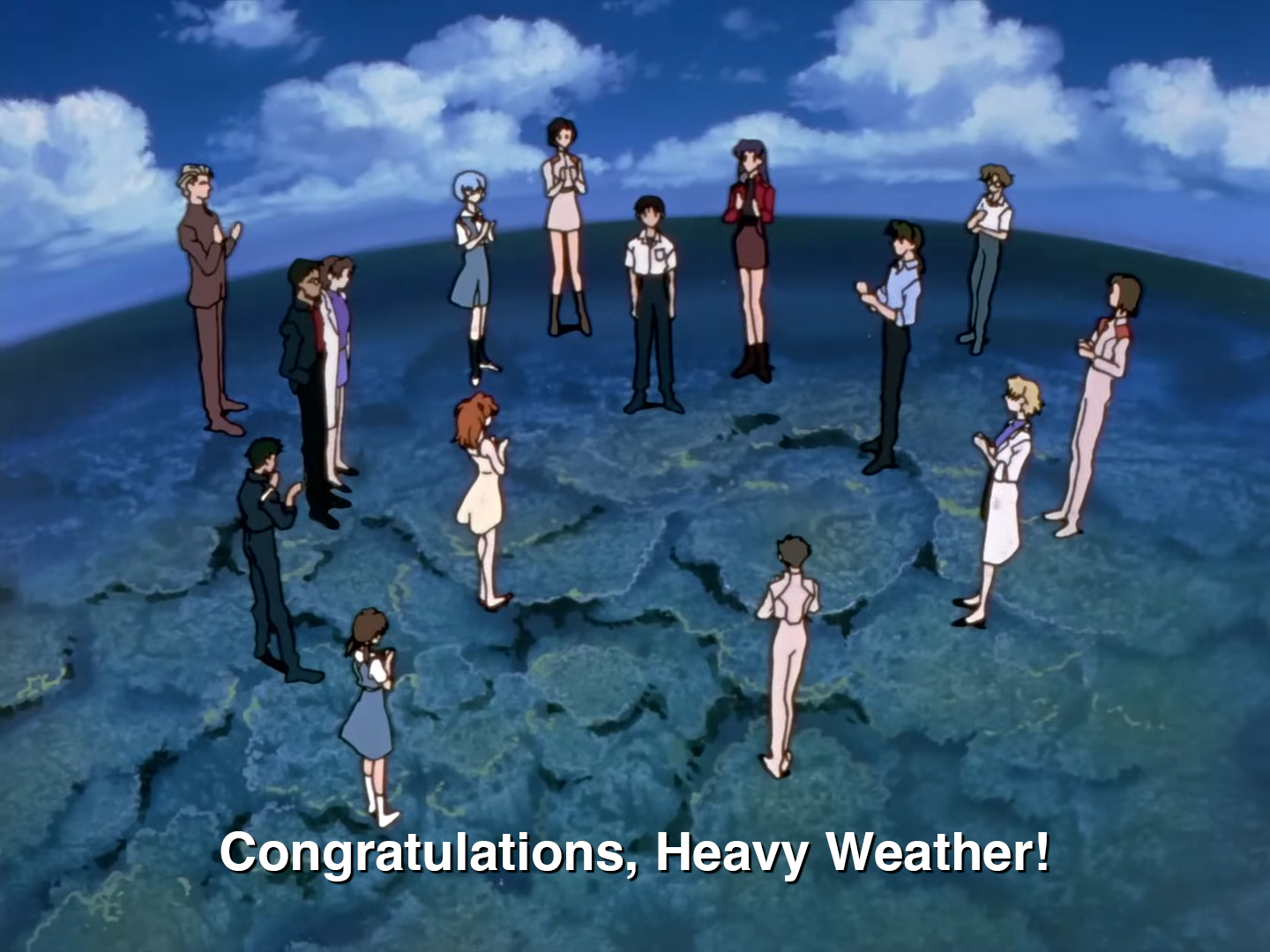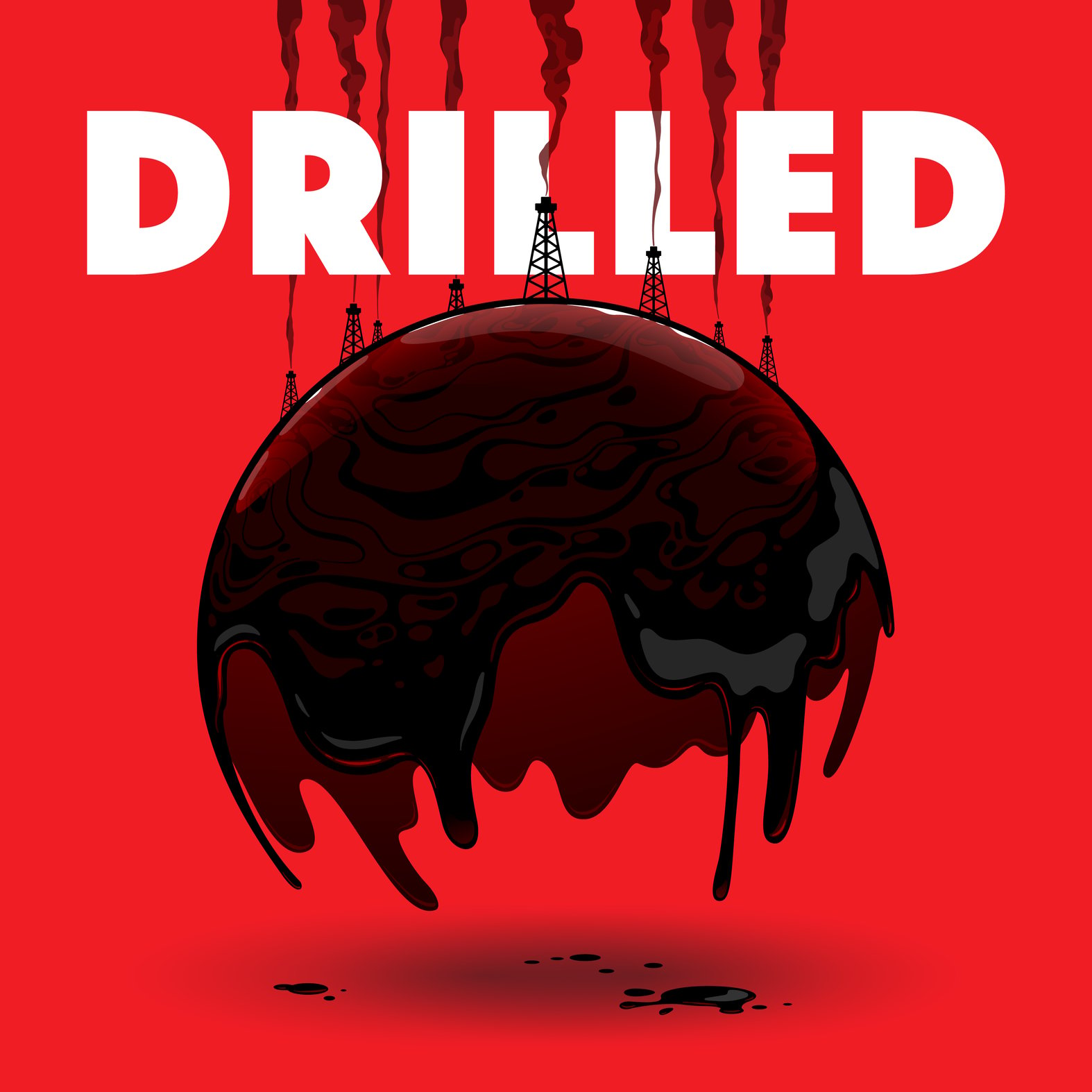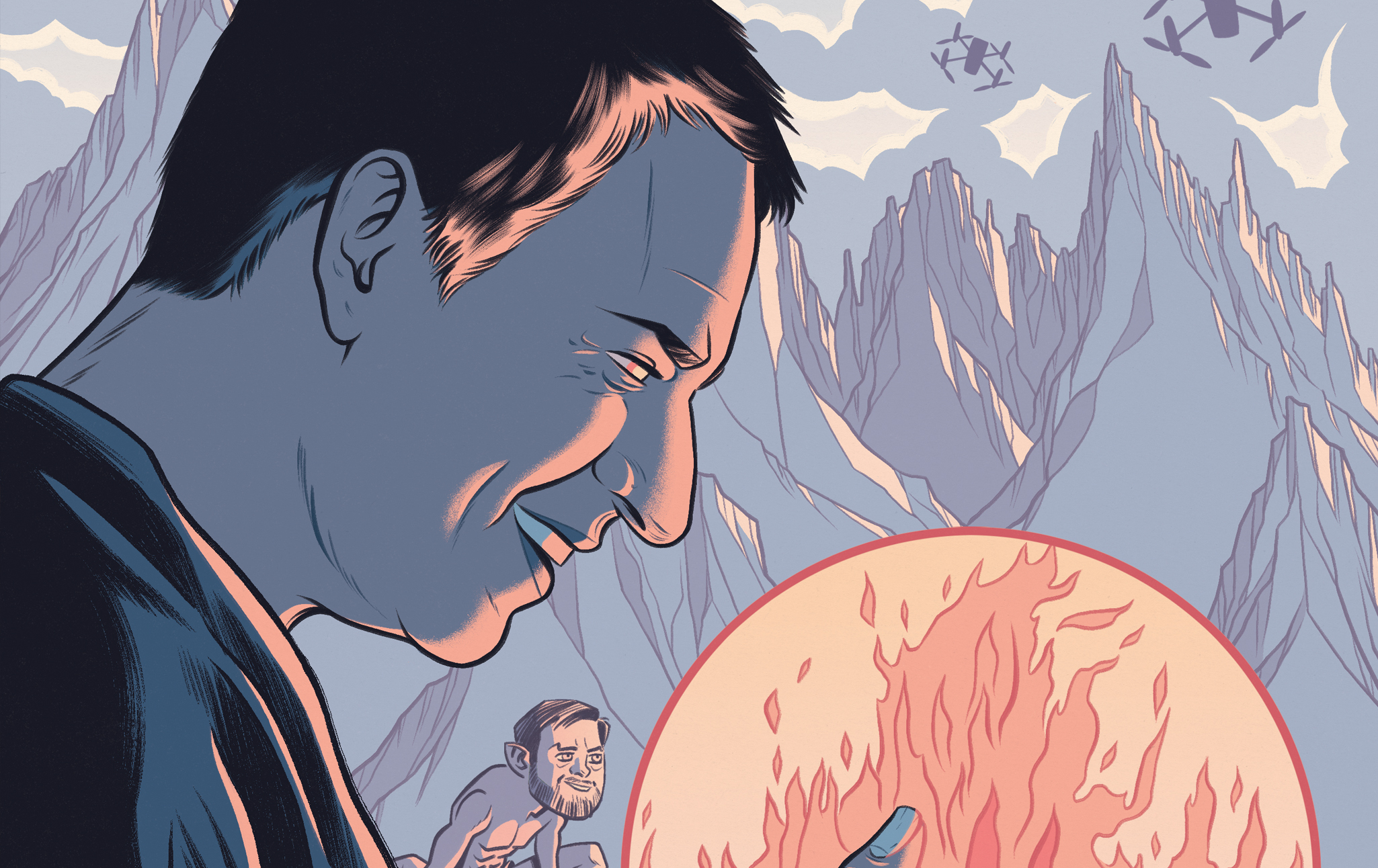Weather Report #15: One year of Heavy Weather
Consuming 06/08/2025

Hi, dear reader. Hope your Sunday is going well! Exactly one year ago yesterday, I published the first ever post on this newsletter. At the time, I couldn't really find a local paper to pick up the stories I was working on, and inspired by the multiple newsletters I read every week, I decided to take a gamble and start my own little thing where I could file things that nobody else would pick up or delve into topics in a geeky way that I couldn't do anywhere else.
So far, it has gone relatively well. While Heavy Weather is not "big" by any means, it does have a small community of subscribers that support what I do. If you're one of the people that supports the newsletter and my writing through a paid subscription, I'm eternally grateful for your support. It genuinely astounds me that people are willing to pay me directly for writing about the things that interest me. If you're a free subscriber thank you, and the best way to help this blog grow is to share it with people you think would find it cool/useful/informative.
I'm going to publish a blog in the next few days that will serve as a retrospective of one year of publishing this newsletter that also details some changes that will be coming.
This week's Weather Report is free for everyone to read as both a thank you to all subscribers and a preview of what you can get every week if you become a paid subscriber.
Here's the roundup:
- One of the most important books I've ever read and re-read about how society reacts to disaster.
- A gripping corporate intrigue film that doubles as an explanation for media cowardice in the modern age.
- Essays, articles, podcasts, and videos on UFO propaganda and the military, the global right's use of forgetting as a tool of fascism, how Trump's Gaza resort fantasy and the network state, the true story behind Greenpeace's recent loss in court and what it could mean for the environmental movement, the Right and Tolkien, and whether you actually need gods for fantasy stories.
- Three mellow songs to drink by the pool to in a mid-sized city in the American Midwest.
While the recommendations are usually behind the paywall, I'm making them free for this special anniversary edition Weather Report. However, if you're interested in seeing other paywalled things I've published here and the new things that are COMING SOON™️, you can become a paid subscriber by clicking the button below. Paid subscribers get access to the MEDIA LIST, a comprehensive list of every book, movie, and video game I've ever recommended. If you want to indulge in a curated list of sci-fi classics, paranoid thrillers, and historical media, or just want to seem cool because you can recommend niche stuff to your friends, then the list is definitely for you. If you're a free subscriber, this whole newsletter is subsidized by paid subscribers. And if you're a paid subscriber, thank you so much! Without paid subscribers, Heavy Weather would literally not exist.
Media Recommendations
A Paradise Built in Hell: The Extraordinary Communities That Arise in Disaster by Rebecca Solnit

In a recent post about how the Trump administration's dismantling of federal agencies could wreak havoc if a hurricane strikes, I name dropped Rebecca Solnit's A Paradise Built in Hell. It was a small mention in a footnote near the end, a kind of "oh by the way, you should read this" sort of thing. But that's really doing a disservice to this book and the importance that it holds in my brain. I read it maybe 4-5 years ago, mostly during a series of flights from Puerto Rico to Columbus, Ohio where I lived at the time. Back then, Puerto Rico was reeling from Hurricane Maria (it still is now, but the wounds have scarred over slightly), and a new catastrophe had just descended, Covid-19 (a pandemic that's still ongoing). The book looks at five disasters and how people reacted to them. It takes a critical look at the myth that people respond to disaster by becoming even more individualistic and starting "the war of all against all," as Thomas Hobbes once said. In reality, people work to help each other through mutual aid and solidarity because they're all living through the disaster together. Instead, it tends to be the elites who panic and cause even more damage. This was true in the disasters Solnit covered and it's been true in Puerto Rico for every single disaster.
I wasn't in Puerto Rico for Hurricane Maria in 2017. I merely watched from afar as people worked together to survive through a disaster that was made much worse through government incompetence. In the news that got published at the time and the stories I've been told since then, you can clearly see how the disaster broke down all social barriers and people banded together when the government wouldn't or couldn't help them. Along similar lines, the book delves into how people taking action in response to disaster allows them to stave off the depression that can often come from disaster and replaces it with a sense of purpose.
Here's a small quote from the book that I think about often:
The joy in disaster comes, when it comes, from that purposefulness, the immersion in service and survival, and from an affection that is not private and personal but civic: the love of strangers for each other, of a citizen for his or her city, of belonging to a greater whole of doing the work that matters.
The Insider (1999) dir. Michael Mann
Most people rightfully rank Heat (1995) as Michael Mann's best movie. However, I would make the argument that The Insider (1999) is a highly underrated close second or third. The movie dramatizes the 1996 Vanity Fair article "The Man Who Knew Too Much." It follows the saga of how 60 Minutes producer Lowell Bergman (Al Pacino) convinced Jeffrey Wigand (Russell Crowe) to become a tobacco industry whistleblower and the blowback from both CBS and Wigand's former employer, Brown & Williamson. Opening with a blindfolded Bergman convincing the founder of Hezbollah to sit down with an interview, the entire film is thoroughly tense and paranoid. The feeling of danger presented by heavily armed Hezbollah members is replicated when a mysterious man in a suit follows Wigand's every move at a darkened golf course. However, convincing Wigand to speak on the record is only the first obstacle Bergman is up against. The second, which takes up the latter half of the movie, is him going up against CBS management, who refuse to publish the full story because of legal threats from Brown & Williamson. Eventually, the segment is published in full, but it's a Pyrrhic victory for Bergman, who correctly assesses the company's initial refusal to publish the segment would be seen by everybody as the space to try to get future segments changed or cancelled at CBS or any other outlet for that matter. To quote Bergman in the film, "what got broken here doesn’t go back together."
The subtle change from a story about Big Tobacco to a story about corporate media controlling the news is masterful and prophetic. The problems presented in the film continue into modern days and have become worse in some instances. An executive producer of 60 Minutes recently left the program because their journalistic independence was being manipulated. Corporate media is historically risk averse and corporate capture of news outlets by billionaires is currently destroying a lot of legacy outlets, like the The New York Times or Washington Post. There's a lot more to how mainstream media is being destroyed by its owners, but dumb rich owners purposefully changing what their reporters are publishing is one of the main issues. When you add subjects who are heavily litigious, it's easy to see how news outlet leadership can easily choose to not publish a story whose creators know would be impactful. Here's a very recent example of corporate media overreach. I don't really know how to get out of this, and I bet that most journalists don't either.
I highly recommend reading this piece by Vulture on the film to get a bigger understanding of how this film was created.
Get a Load of This:
At times, as with the deception around Area 51, military officers spread false documents to create a smokescreen for real secret-weapons programs. In other cases, officials allowed UFO myths to take root in the interest of national security—for instance, to prevent the Soviet Union from detecting vulnerabilities in the systems protecting nuclear installations. Stories tended to take on a life of their own, such as the three-decade journey of a purported piece of space metal that turned out to be nothing of the sort. And one long-running practice was more like a fraternity hazing ritual that spun wildly out of control.
https://www.wsj.com/politics/national-security/ufo-us-disinformation-45376f7e? (embed didn't work)
The Pacto del Olvido had its American counterpart in the Lost Cause myth—the decades of Confederate memorials framing traitors as heroes and slavery as a “states’ rights” dispute. Now, the GOP accelerates the lie. The same party that bans books now lauds Viktor Orbán’s “illiberal democracy,” a phrase also used to describe Franco’s black-and-white Spain. In April, Mississippi Governor Tate Reeves declared Confederate Heritage Month—indulging, for the thirty-second time, an annual request from the Sons of Confederate Veterans to memorialize their legacy.
Never reckoning with its own past, America, it seems, is now sharing Spain’s fate. No truth commissions, no reparations. Instead, fierce backlash to memory—“It appears the purpose of the 1619 Project is to delegitimize America,” a Federalist writer contended—and narratives of a nation invaded.

Gil Durán broke down what Trump's Gaza resort fantasy means for the future of privatized sovereignty:
The people behind this movement—Thiel, Andreessen, Armstrong, Luckey—are not fringe figures. They are reshaping global policy with venture capital and ideology. And they’re betting big on the one man willing to sell the country to them, piece by piece.
Trump may not grasp the theory behind the Network State. But he embodies it: authoritarianism disguised as innovation. Sovereignty sold to the highest bidder. Capitalism without constraint. Fascism — maybe with flying cars.

The story the lawsuit told was so different from what I’d heard from Cody and others. Source after source had told me Indigenous people and nations made their own decisions to stand up against a company that threatened their water and their rights to land.
Regardless of how ridiculous this lawsuit seemed, in 2025 it made it to trial.
And in March, I found myself sitting in a courtroom in Mandan, North Dakota, listening to a court clerk reveal the verdict. After a three and a half week trial, The jury decided overwhelmingly in favor of the pipeline company’s story. The total damages: over $666 million. A number that threatened to bankrupt Greenpeace in the U.S.
I’d spent nearly a decade reporting on what had happened with the Dakota Access Pipeline and the Standing Rock movement. I sat through the lawsuit’s nearly month-long trial, in that same room with those nine jurors. The evidence I had heard was thin. And yet the jury delivered almost precisely what Energy Transfer’s lawyers asked for.
How the hell did this happen?
And if an oil company could push its version of events so successfully here, then what did that mean beyond this courthouse?

In a particularly embarrassing 2022 blog post, Yarvin set up an extended analogy between different kinds of magical creatures from Middle-Earth and what he imagines to be the different factions in today’s American culture wars. The conservatives who make up the Republican base, he writes, are like hobbits, who “just want to be governed sensibly, in a way that makes sense to hobbits.” Liberals, meanwhile, are like elves who “use political power to impose elf culture” onto the hobbits. (This is an oblique reference to Yarvin’s belief that basically all institutions have been captured by a “Cathedral” of stifling left-wing orthodoxy; there are more extremely long blog posts about that.) But hobbits, Yarvin writes, are constitutionally incapable of taking power themselves; they “will always be governed by elves,” and it’s “normal and fine for hobbits to be ruled by elves,” because that’s just the natural order of things. So, he says, the only way conservatives can win the culture war is to hand “absolute power” to “dark elves” like himself: in other words, intellectual elites who favor a reactionary “pro-hobbit regime” to replace the liberal one. The dark elves will “become and remain influential in narrow circles,” eventually “establishing cultural dominance” in order to “seduce the ruling high elves into losing faith in their own prestigious institutions” and “rule the future.” It’s a long, tortured metaphor, and I’m simplifying it to make it halfway intelligible, but it boils down to a Tolkien-themed expression of Yarvin, Thiel, and Vance’s agenda: dismantle liberal institutions, sow doubt about the concept of democracy itself, and build an alternative right-wing regime.

Put This On:
"Sucker Punch" by Worry Club
"Onset" by Hikes
"Call In" by Tomper
Please share this Weather Report with anybody you think would appreciate it!
For more media recommendations, check out the MEDIA LIST. If you want me to personally recommend you something (not just books, could be games, music, etc...), leave a comment below and I'll try to recommend something in the next Weather Report.
Thank you for reading.









